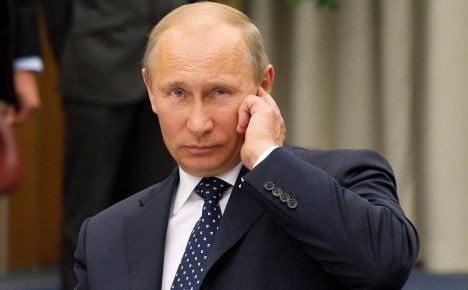The Quadriga Prize, bestowed on the anniversary of German reunification on October 3, is a private award that recognises “role models for enlightenment, dedication and the public good,” the Werkstatt Deutschland organisation said.
Its board of trustees is comprised of top officials from across the political spectrum, journalists and business executives.
Previous winners include European Commission chief Jose Manuel Barroso, former Czech president Vaclav Havel and Serbian President Boris Tadic.
Werkstatt Deutschland spokesman Stephan Clausen confirmed reports that Putin would accept the prize in Berlin.
However he admitted that the board’s choice was a matter of “heated debate,” with Greens party leader Cem Özdemir abstaining in the vote, which nevertheless garnered a majority for Putin.
“Reliability paired with staying power, dependability paired with the ability to communicate make up the character and personality of Vladimir Putin,” the daily Süddeutsche Zeitung quoted the organisation as writing in its report on the selection of Putin.
“He has created and is creating stability in his country with the interplay of prosperity, business and national identity.”
But the front-page article said: “Russian human rights activists and intellectuals would hardly recognise the Moscow strongman in this statement.”
The Tagesspiegel newspaper wrote in an editorial Sunday that the ex-KGB agent had never broken with his past in the secret services and had established a new authoritarian system.
“Putin continuously consolidated his power in the last 11 years,” it said. “The supposed stability (in Russia under Putin) has a high price: less freedom, less democracy … This award is not only for Russian rights activists a slap in the face.”
Putin entered the Kremlin as president in 2000 and remained until 2008. In that time, the state wrested back control of major media outlets, subjected rights groups to a wave of new restrictions and dealt harshly with perceived opponents.
He now serves as prime minister and has remained the country’s most popular politician. Neither he nor current President Dmitry Medvedev have said which of them will run in presidential elections scheduled for March.


 Please whitelist us to continue reading.
Please whitelist us to continue reading.
Member comments